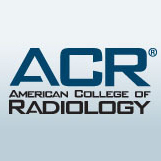by
Brendon Nafziger, DOTmed News Associate Editor | November 05, 2009

A leading radiology
accrediting organization
The American College of Radiology will be among the first to apply for authority to accredit freestanding diagnostic imaging centers as required by new CMS rules, according to a statement issued by the doctors group this week.
CMS has announced that by January 1, 2012, all non-hospital diagnostic imaging centers need to be accredited by an approved by body in order to qualify for Medicare reimbursements for the technical component of their services. This requirement follows a 2008 Medicare law mandating tighter regulations of freestanding imaging clinics, and applies to centers working in advanced diagnostic imaging modalities, including MRI, CT and nuclear medicine such as PET.
Under the new rules, centers and mobile clinics administering the exams need to be accredited, but physicians reading the exams do not, as they are usually licensed by a state or national board in their discipline.




Ad Statistics
Times Displayed: 30194
Times Visited: 744 Stay up to date with the latest training to fix, troubleshoot, and maintain your critical care devices. GE HealthCare offers multiple training formats to empower teams and expand knowledge, saving you time and money
The American College of Radiology believes its long history and experience of ensuring radiological practices are up to snuff will help it keep clinics compliant with the new CMS rules.
"We're the oldest and most widely used accrediting body in the U.S. for medical imaging facilities, and we feel we've earned an excellent reputation doing this...we'd be the leading organization to carry out such a large-in-scope project," Shawn Farley, a spokesman for ACR, tells DOTmed News.
The ACR programs go back to the 1960s, and accredit more than 16,000 radiation and radiation oncology facilities worldwide; it's the only non-governmental accrediting body recognized by the Mammography Quality Standards Act, according to Farley.
Farley says the ACR has a three-legged approach to accrediting: ensuring physicians who interpret exams have met certain training requirements; having machines regularly tested by medical physicists so CT radiation doses are appropriate and the equipment is taking the best images it can; and getting technologists running or maintaining the equipment certified by the relevant body.
As for the new rules, Farley says ACR welcomes them, as they will help ensure a high level of health care quality.
"If a facility is not accredited," he says, "there's no guarantee any of [the best practices] have been done or are in place. We have to make sure there is a uniform level of care across the country, no matter if someone walks into a clinic in Tupelo, Mississippi or New York City."
Farley says he expects ACR's application to be submitted well before the December 1, 2009 deadline by which all would-be accreditors have to submit their proposals to the CMS.
Back to HCB News

